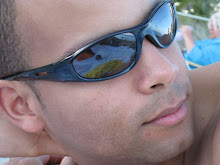
Background in T. O.
I have some experience with the techniques from Augusto Boal’s Theatre of the Oppressed arsenal, and as a former public school teacher in Los Angeles, I can tell you that his activities from Games for Actors and Non-Actors were among my most successful experiences with my high school drama classes. My training in this area was limited to one class (Intro to Boal’s Theatre of the Oppressed in 2003) and some further introduction was offered in Teaching Through Drama, but I feel that I lack a deep understanding of the aesthetic form that these activities were designed for. While I have participated in several forum theatre experiences (in the Methods and Materials of Research class a number of years ago and working with former colleagues in the Ed Theatre program), I feel that I have much more to learn and I’m hoping to accomplish that here in Puerto Rico.
Why T.O. Now?
When I applied for the PhD program in Educational Theatre, I was certain that I wanted to research what value teaching Shakespeare had on the academic, social and emotional lives of economically disadvantaged students from minority groups. Subsequently, I have discovered that a number of studies have been done in a similar area which forced me to question the underlying principles that had piqued my curiosity. Obviously I thought the teaching of Shakespeare had a significant value or I wouldn’t have come up with that research question, but this was grounded in my belief (based on my experience both as a student and as a teacher) that drama as a whole has a significant impact on the academic, social and emotional lives of young people. Digging deeper, I identified those of my students who had the most visceral and positive response to drama and found them often to be considered at-risk youth. As a teacher, there is a limited amount of involvement that I could have in the lives of the young people (I was not a guidance counselor, after all, and there was the curriculum to see to), so I wondered what other avenues I might have available to me to reach similar groups of young people and truly help them to reflect on their life experiences and take ownership of their future. I think I may have found that in furthering my study in Theatre of the Oppressed techniques in community settings—work which I would like to bring to young people involved in the foster care system or group homes (populations I encountered frequently in my years of teaching).
Guiding Questions
1. How does the facilitator negotiate the boundary of drama practice and drama therapy?
2. In what ways can physicality replace spoken word to allow the participant to truly express a feeling, emotion, or oppression?
3. How can the facilitator negotiate language and cultural barriers when working with new populations?
4. What activities or techniques can the facilitator employ to insure maximum engagement and dedication from participants?

No comments:
Post a Comment